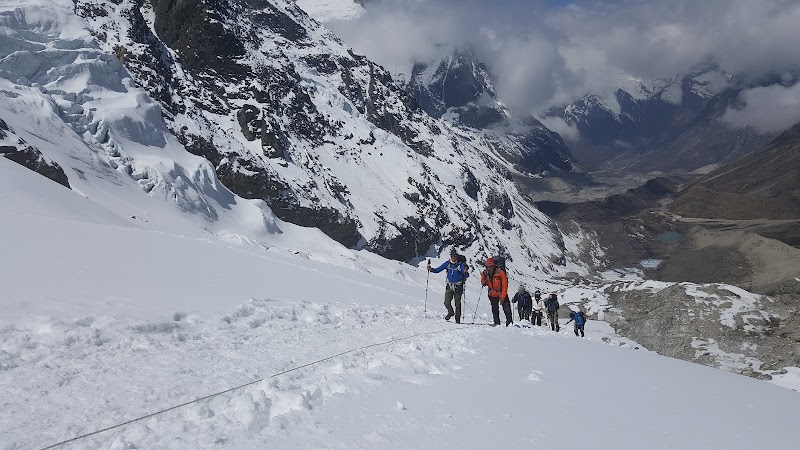
Cayuga Lake Triathlon: Adventure Meets Endurance in King Ferry, NY
The Cayuga Lake Triathlon in King Ferry, NY, invites athletes to engage with a dynamic mix of swim, bike, and run set against the lake’s rugged shoreline and rolling hills. Combining demanding terrain with clear, practical logistics, it offers a challenging yet accessible test of endurance amid stunning natural surroundings.
Hydration Strategy
Bring a hydration system or bottles for the bike and run segments. Access to water stations can be limited, so plan intake before and during each leg.
Footwear Selection
Use well-cushioned running shoes with good grip for the varied terrain on the run, and cycling shoes compatible with your pedals for efficiency on the bike.
Early Arrival
Arrive early to familiarize yourself with transition areas and take advantage of cooler morning temperatures for the swim start.
Course Familiarization
Review course maps and profiles ahead of time to identify key elevation changes and technical sections on the bike and run segments.
Cayuga Lake Triathlon: Adventure Meets Endurance in King Ferry, NY
The Cayuga Lake Triathlon in King Ferry, New York, offers more than just competition—it’s an invitation to engage with a landscape that’s alive and demanding. Starting with a 0.9-mile swim across the cool, bold currents of Cayuga Lake, the water dares you to move efficiently, rewarding every strong stroke with clear, refreshing resistance. Transitioning to a 28-mile bike course, asphalt winds through rolling hills and stretches alongside the lake’s shoreline, where trees lean in as if tracking your speed. This leg calls for both endurance and savvy pacing as the terrain rises and falls, pushing you to find your rhythm while absorbing the quiet push of the environment.
The final challenge is a 6.6-mile run that threads through rural roads and shaded paths, with occasional glimpses of the lake’s glassy surface reflecting the sky’s changing mood. The run tests your stamina on varied pavement and gravel, demanding steady footwork and focused hydration. Expect to carry a light running vest or belt for water and quick energy.
Preparation is key: water is your closest ally here, and strong, well-fitted footwear is essential across disciplines—from quick-swim transitions to gripping bike pedals and confident strides. Arrive early to map out your transition zones; daylight and calm conditions early in the morning offer the quietest start for clarity and focus. The landscape acts as both guide and challenger, flipping between gentle encouragement and sudden demands for strength. This triathlon asks respect—not to be conquered, but matched, stride by stroke.
By blending endurance sport with striking terrain, the Cayuga Lake Triathlon makes each participant part of the lake’s pulse. You experience not only the physical course but the proven layers of environment and effort, making it ideal for athletes ready to test themselves amid an honest natural force. Whether you're a seasoned triathlete or approaching the sport with cautious ambition, this course offers a well-rounded challenge balanced with accessible logistics and memorable surroundings.
Nearby Trips
All Adventures
Boat Charters
Water Activities
Adventures near King Ferry, New York
Discover the unique and memorable adventures that make King Ferry, New York special.
Frequently Asked Questions
Is the swim portion suitable for beginners?
The 0.9-mile open water swim can be challenging due to lake currents and cool water temperatures, especially early in the season. Beginners should consider swim training in open water or lakes with similar conditions and use a wetsuit for buoyancy and warmth.
What is the elevation gain on the bike and run courses?
The bike segment features moderate elevation changes totaling approximately 800 feet, with rolling hills along the lake. The run has lighter elevation gains around 200 feet but includes sections with gravel roads that can be uneven.
Are there aid stations available on the course?
Yes, aid stations are strategically placed, mainly during the bike and run segments. However, it’s wise to start with hydration and carry enough fluids and nutrition, particularly for warmer days.
What wildlife might participants encounter?
Participants may see white-tailed deer, red foxes, and a variety of songbirds. The lake’s waterfowl, including migrating ducks and herons, add to the natural ambiance, especially in the quieter early morning hours.
Can spectators access the course easily?
Yes, the bike and run portions pass through accessible rural roads, with multiple vantage points near the lake and King Ferry community areas. Parking is limited near the transition zone, so arriving early is recommended.
What cultural or historical features are nearby?
King Ferry is close to several Finger Lakes’ historical sites, including old farming homesteads and small town museums that reflect early settlement patterns. The region also holds significance for the Cayuga Nation, one of the Haudenosaunee Confederacy members.
Recommended Gear
Wetsuit
Provides thermal protection and added buoyancy for the early-season swim portion.
Cycling Helmet
Mandatory for safety during the bike segment on winding roads.
Running Shoes with Grip
Agile enough for pavement and gravel, protecting feet on mixed terrain during the run.
Hydration Vest or Belt
Allows you to carry fluids and energy gels for the long run under warm conditions without relying solely on aid stations.
Local Insights
Hidden Gems
- "An overlook on the bike route near Black Diamond Trail reveals an uncrowded north-facing bluff with expansive views of Cayuga Lake."
- "The King Ferry Marina offers quiet lakeside peace and opportunities to spot osprey and eagles during migration seasons."
Wildlife
- "Keep an eye out for beavers industriously maintaining dams along small streams feeding into the lake."
- "Yellow warblers and Eastern bluebirds are frequent songbirds along forest edges by the race route."
History
"The area surrounding King Ferry was historically inhabited by the Cayuga Nation and later became important farmland in the 19th century. Many of the old roads follow historic routes once used for trade and travel between Finger Lakes communities."
